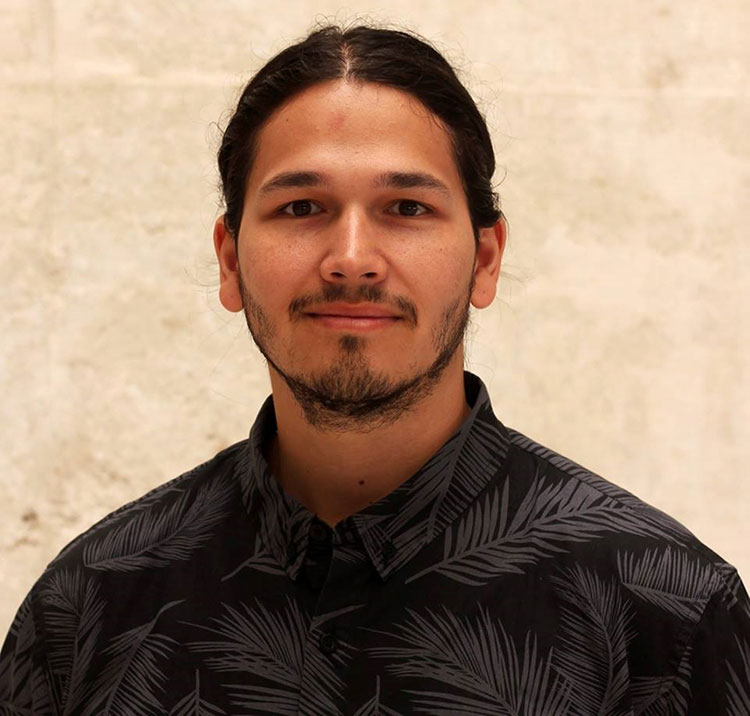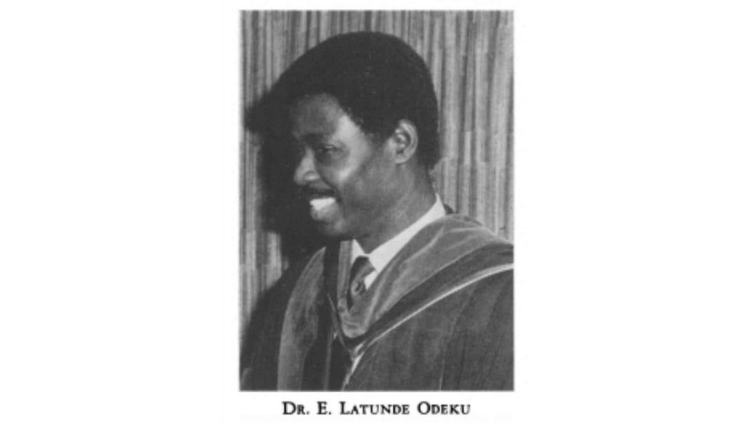How a Young Scientist Turned His Research Career into Community Outreach
- Published11 May 2022
- Author Ray Mwareya
- Source BrainFacts/SfN
Ryan Tomm never expected to end up in the lab. He just knew he wanted to help his community, the Cree Nation in Northern Alberta. Maybe by working as a counselor, or a psychologist. But neuroscience research turned out to be his path.
Now, Tomm is a behavioral neuroscience and psychology PhD candidate at the University of British Columbia. Tomm spoke with BrainFacts.org about his research, his science outreach, and how both can benefit his community.

Why did you choose to pursue a career in neuroscience?
After high school, I worked as a First Nations support worker in Chase, British Columbia, where I helped students stay on track with their studies. I really enjoyed helping them, so I went to The University of British Columbia to become a counselor or clinical psychologist. But then I took some animal behavior and pharmacology courses taught by Dr. Kiran Soma and Dr. Stan Floresco — two professors who would end up mentoring me in my master’s degree — and became really interested in the brain and how it works. I began to think I could help my community out by becoming a neuroscience researcher and understanding the brain. Even though my research doesn't specifically focus on Indigenous people (my previous work was in rodents, and now I study anxiety and depression in humans), having that knowledge could be useful to help my community make policy decisions about mental health and wellness.
What have you studied so far?
As an undergraduate, my research looked at how sex steroids (sex hormones) like testosterone influence executive function. During aging, a decrease in testosterone levels — especially in males — coincides with cognitive decline. Typically, we think of sex steroids as being produced solely in the gonads. But there's been increasing evidence that sex hormones can be synthesized (chemically produced) in the brain, too. We thought that perhaps some people are more immune to declines in executive function during aging, when gonadal production is low, because of increased steroid synthesis in the brain.
I tested this hypothesis during my master’s degree by looking at behavioral flexibility in rats. In one experiment, we divided male rats into two groups: we removed the gonads from one group and left the gonads intact in the other. Then we divided those groups again: One group received a drug called abiraterone acetate that blocks the synthesis of androgens (i.e., testosterone), and the other received a placebo. The rats learned to press a certain lever to receive a reward, but then we would change the rule. The rats would need to disengage from the old rule and try new strategies to get their reward.
Rats who received the drug showed increased behavioral flexibility and were faster to try a new approach. The rats with normal testosterone levels showed persistence, meaning it took longer for them to abandon an old rule and try a new one. This behavior appeared in both the control rats (gonads intact, no drug) and the rats without gonads who didn’t receive the drug (only the brain was producing testosterone). These results indicate brain-synthesized testosterone alone may be enough to preserve standard behavior. Understanding how local steroid synthesis occurs could potentially be used to maintain cognitive function as systemic testosterone levels decrease during aging.
Why did you pivot from studying steroids in rats to studying mental health in humans?
First Nations people disproportionately experience depression and anxiety, and part of that is the legacy of residential schools. I wondered how going through those stressful early-life events impacts development. My grandma was really young when she went to residential school, and as an adult she dealt with anxiety. During my master’s degree, my grandma passed away. I fell into a depression, and it was a very difficult time. These experiences motivated me to transition into new work in my PhD: I wanted to do translational research. I was able to find my current PhD supervisor, Dr. Rebecca Todd, who shares my research interests. Now, I'm trying to create closer links between preclinical animal models and the psychiatric disorders they represent to better understand anxiety and depression.
Tell me about some of your outreach work.
I participated in the Indigenous Student Ambassadors program, which gave me funding to travel to different communities and speak to hundreds of Indigenous students about science careers. In high school, I never thought I would go to university. Now that I am in a graduate school program doing cool research, I want to show indigenous students what they can do. In high school, there's often a misconception about science and research. Students think that since they aren't good at a certain science class, they would be bad at research, or they can’t become a scientist. But there's such a wide range within the field. I try to open their minds and tell them, “Hey, you may not be good at chemistry, but you might be good at biology.”
I often use my behavioral flexibility research as a metaphor. Sometimes being able to adjust your behavior can be beneficial. Sometimes there might be a bunch of distractions when you're going to high school, and you might not think that school is for you. But maybe at some point these circumstances change, and you might see yourself as a scientist. You may be able to disengage from previous things that weren't working for you and pursue different goals.
Additional reporting and writing by Calli McMurray
CONTENT PROVIDED BY
BrainFacts/SfN
References
Hanson, E., Gamez, D., & Manuel, A. (2020, September). The Residential School System. Indigenous Foundations. Retrieved April 13, 2022 from https://indigenousfoundations.arts.ubc.ca/residential-school-system-2020/
Low, K. L., Tomm, R. J., Ma, C., Tobiansky, D. J., Floresco, S. B., & Soma, K. K. (2020). Effects of aging on testosterone and androgen receptors in the mesocorticolimbic system of male rats. Hormones and behavior, 120, 104689. https://doi.org/10.1016/j.yhbeh.2020.104689
Also In Meet the Researcher
Trending
Popular articles on BrainFacts.org


















